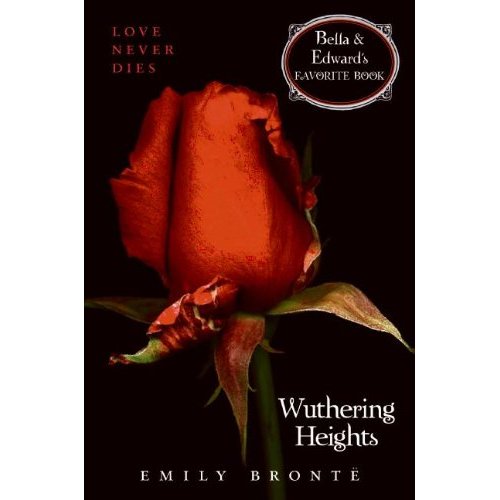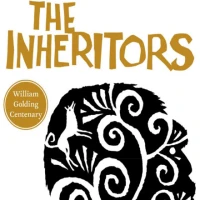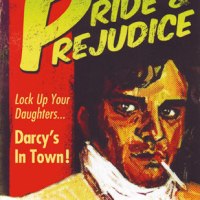The Island of Doctor Moreau, by H.G. Wells
I last read The Island of Doctor Moreau as a teenager. It didn’t do much for me then, dwarfed by the more obvious charms of The Time Machine or The War of the Worlds. The only reason I returned to it all these years later was because I was planning to read Adolfo Bioy Casares’ The Invention of Morel and had heard that Moreau partly inspired Morel.
Reading Moreau as preparation for Morel wasn’t particularly necessary as I’ve now read Morel and other than the title and island setting there’s not much commonality. Fortunately, it turns out that adult me likes The Island of Doctor Moreau a lot more than teenage me did.
Island opens with a framing device. The manuscript the reader is about to encounter was left behind by an Edward Prendick, now deceased. Prendick was lost at sea and on recovery a year or so later initially told a fantastical tale before claiming he had lost all memory of what had happened during his absence. His health never truly recovered.
From there we’re into the book proper – Prendick’s posthumous account of what really happened to him which can be published now he’s safe from being locked up as a lunatic. It’s an ugly tale of science without morality (a common Wellsian theme) and of how little separates the human from the animal.
After an offscreen shipwreck Prendick is left adrift at sea. He’s finally picked up by a strange ramshackle trading ship with a drunken captain and a cargo of exotic animals. He’s not the only passenger – there’s a dissolute and rather weak young Englishman named Montgomery and Montgomery’s half-witted servant M’ling who both the crew and animals fear and loathe.
The black face thus flashed upon me startled me profoundly. The facial part projected, forming something dimly suggestive of a muzzle, and the huge half-open mouth showed as big white teeth as I had ever seen in a human mouth. His eyes were bloodshot at the edges, with scarcely a rim of white round the hazel pupils. There was a curious glow of excitement in his face.
Although M’ling does nothing wrong, Prendick can’t help but feel a shock of revulsion at him. The abhorrence is somehow intrinsic; a sense of wrongness. Soon Prendick realises that M’ling is even stranger than he at first imagined:
It may seem a little thing to you, perhaps, but it came like a sudden blow to me. The only light near us was a lantern at the wheel. The creature’s face was turned for one brief instant out of the dimness of the stern towards this illumination, and I saw that the eyes that glanced at me shone with a pale-green light.
These early parts of the book (in fact the whole first half really) are wonderfully creepy. Wells is very, very good on the unnaturalness of all this and on the horror that comes not from something terrible happening or being threatened but just by virtue of things not being as they should be.
Montgomery and M’ling are taking the animal cargo to a supposedly uninhabited island and against Prendick’s protests the ship’s captain and crew take the opportunity to dump him there too. It’s there he meets Doctor Moreau, a vivisectionist exiled years past from London society for his unusual cruelty and arrogance. Nobody knew what had happened to him, but here he is surrounded by servants of peculiar appearance and strangely garbled speech.
The island is a miserable place: the climate too hot; the food poor; Montgomery often drunk; the servants oddly repellent; but worst of all is Moreau who Prendick soon realises never ceased his experiments in vivisection but instead has taken them to new and undreamed of extremes. Moreau is swift to take his knife to the new animal captives:
Suddenly the puma howled again, this time more painfully. Montgomery swore under his breath. Then the poor brute within gave vent to a series of short, sharp screams.
As Moreau chillingly reminds Prendick, “‘You forget all that a skilled vivisector can do with living things’”.
I don’t think it’s too much of a spoiler to reveal that Moreau has been using his extraordinary skills and lack of conscience as a vivisector to transform animals into men. Scientifically of course it’s nonsense but that doesn’t matter because it allows Wells to explore some very fruitful themes.
What is it that makes a person human? Moreau takes his poor beasts and tortures them into upright forms that look mostly like us. Their hands are often misshapen and their speech can be difficult to follow but for all that they do have hands and speech. Moreau gives them law and a form of religion which leads to a fantastic scene where Prendick finds himself in the home of the beast-men as they recite the litany given them by Moreau.
To a late 19th Century reader some scenes here must have been fairly shocking. The beast-men see Moreau as their creator; they recite a creed to honour him and see him as an Englishman would see his Christian God. They believe that even when absent Moreau knows if they break his laws – run on all fours, hunt game, drink water by lapping it direct from pool or stream.
Nature, however, will out. The beast-men no longer have the innocence of animals but nor have their instincts entirely abandoned them. Without the repetition of the law they quickly fall back into savagery. But then, the ship’s captain and crew at the beginning abandoned Prendick to Moreau’s island out of caprice and cruelty. Are the beast-men so different? Are the humans here better? Nobody comes out of this well.
We know from the start that it won’t last. The opening chapter mentions that the only island that fits Prendick’s description is uninhabited without sign of Moreau or Montgomery or beast-men or any of them. We know Prendick leaves and is eventually found and brought home.
Once back he finds that Moreau’s island changed him just as it changed the unfortunate animals Moreau took under his knife. Prendick reflects:
I am told that even now my eyes have a strange brightness, a swift alertness of movement.
Much worse is his internal change. He has seen the thin line separating animals from men and now returned he can see it still:
When I lived in London the horror was well-nigh insupportable. … prowling women would mew after me, furtive craving men glance jealously at me, weary pale workers go coughing by me with tired eyes and eager paces like wounded deer dripping blood, old people, bent and dull, pass murmuring to themselves and all unheeding a ragged tail of gibing children. Then I would turn aside into some chapel, and even there, such was my disturbance, it seemed that the preacher gibbered Big Thinks even as the Ape Man had done;
This was a deeply topical book. The morality of vivisection was hotly debated in Wells’ time and the implications of evolution and the idea that humanity was not some form of separate creation to animals remained controversial to many. Now those are both largely (though not entirely) settled topics and yet the book retains its power.
As I write this my mind keeps turning to the various forms of savages Prendick encounters: the ship’s captain and crew; Moreau and Montgomery; the beast-men. The beast-men elicit instinctive disgust and pity but for all their barely repressed savagery it’s no accident on Wells’ part that the true cruelties of this book are performed by people.
Wells’ science fiction is the science fiction of big ideas. For some reason his stories seem often to be taken very literally. People seem to miss that The War of the Worlds is about the experience of colonialism for those colonised; or that The First Men in the Moon addresses the need for morality in business and science. It seems more common to pick up that The Time Machine is in large part about class inequality but even that is often taken at a purely surface level. Perhaps it’s because he writes such good adventure stories that people often miss his underlying sharp criticisms most of which sadly remain all too relevant.
On a last note, I read the rather good Pocket Penguin edition of this which comes with sparse but well-judged notes. At one point for example Prendick refers to a “comus rout” among the beast-men which meant nothing to me but which a footnote then helpfully explains both in terms of the direct reference and in terms of a potential source of inspiration for Wells. It’s a really good edition and if you decide to give this a go I entirely recommend it.
Other reviews
Tons I’m sure, but none I know of on any of the blogs I typically follow. If I’m wrong on that I’d be delighted to be corrected in the comments.

























